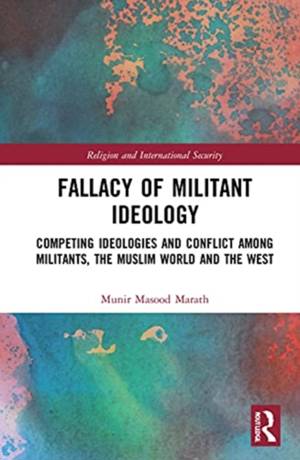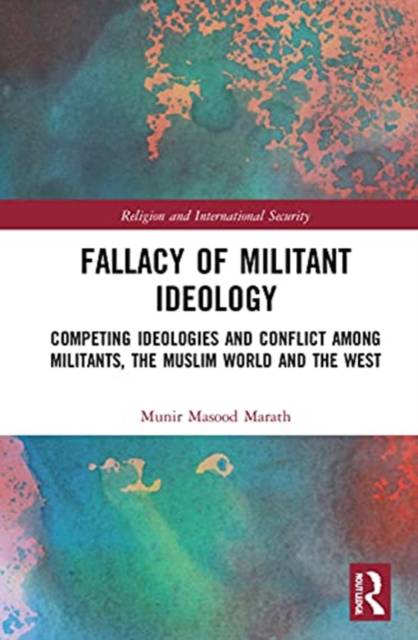
Door een staking bij bpost kan je online bestelling op dit moment iets langer onderweg zijn dan voorzien. Dringend iets nodig? Onze winkels ontvangen jou met open armen!
- Afhalen na 1 uur in een winkel met voorraad
- Gratis thuislevering in België vanaf € 30
- Ruim aanbod met 7 miljoen producten
Door een staking bij bpost kan je online bestelling op dit moment iets langer onderweg zijn dan voorzien. Dringend iets nodig? Onze winkels ontvangen jou met open armen!
- Afhalen na 1 uur in een winkel met voorraad
- Gratis thuislevering in België vanaf € 30
- Ruim aanbod met 7 miljoen producten
Zoeken
Fallacy of Militant Ideology
Competing Ideologies and Conflict Among Militants, the Muslim World and the West
Munir Masood Marath
€ 182,45
+ 364 punten
Uitvoering
Omschrijving
This book highlights the conflict between jihadist militants and the West as essentially ideological in character. It has serious implications internalized by Muslim societies, with the boundaries of faith changed by the interplay of socio-political variables.
Violence emerged in Muslim societies as a means of emancipation or identity when the state could not resolve the conflict situation. Although the militants were influenced by socio-political factors, they have always looked to religion to justify their acts of violence. This book, exposing the fallacy of the narrative evolved by the militants, offers a counter narrative. It reinterprets the primary sources, unravels the historical and socio-political constructs, unmasks the heroes and enemies, challenges the dichotomies between theory and practice, re-establishes the boundaries between heresy and faith, and attempts to transform the current ideological discourse. This book will be of interest to students and scholars of the discourse between religion and security, political Islam, Islamic history, jihad, Middle Eastern studies, and South Asian studies.Specificaties
Betrokkenen
- Auteur(s):
- Uitgeverij:
Inhoud
- Aantal bladzijden:
- 242
- Taal:
- Engels
- Reeks:
Eigenschappen
- Productcode (EAN):
- 9780367759599
- Verschijningsdatum:
- 6/09/2021
- Uitvoering:
- Hardcover
- Formaat:
- Genaaid
- Afmetingen:
- 156 mm x 233 mm
- Gewicht:
- 3019 g

Alleen bij Standaard Boekhandel
+ 364 punten op je klantenkaart van Standaard Boekhandel
Beoordelingen
We publiceren alleen reviews die voldoen aan de voorwaarden voor reviews. Bekijk onze voorwaarden voor reviews.











